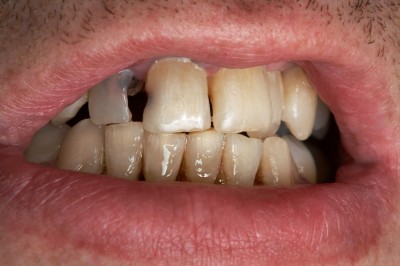Dental experts outline ways to fight plaque

Experts at the British Dental Association have outlined a number of ways to reduce plaque and fight harmful bacteria in the mouth.
Plaque is a sticky substance, which is made up of bacteria and left over food deposits; it clings to the surfaces of the teeth and the gum line. The bacteria produce plaque acids, which attack the protective enamel surfaces on the teeth and make the teeth more vulnerable to decay. As well as contributing to a range of oral health conditions, the harmful bacteria present
in plaque can also contribute to serious medical conditions including cardiovascular disease.
In order to reduce the amount of plaque in the mouth, dentists advise people to adopt a good daily oral hygiene routine, which includes brushing the teeth twice each day, flossing and rinsing using mouthwash. Dentists also recommend using toothpastes that contain special anti-plaque ingredients, such as triclosan. Using an electric toothbrush will also help to remove more plaque than brushing with a manual toothbrush.
Eating a diet that is low in sugar can also help to prevent plaque build-up as bacteria like to feed on sugary foods; this weakens the enamel surfaces of the teeth. Eating and drinking foods and drinks that are high in polyphenols can also reduce plaque, according to numerous studies; examples of these foods and drinks include cranberry juice, red wine and green tea. Polyphenols prevent the plaque from sticking to the teeth and also stop the bacteria from producing the harmful plaque acids, which weaken the enamel surfaces of the teeth.
Researchers at the University of Madrid have also discovered that olive oil has benefits for oral health; adding a drizzle of olive oil to our daily diet can help to prevent bacteria from clinging to the surfaces of the teeth; this is a result of the high content of oleuropein, an anti-bacteria substance. The study was launched when researchers found a positive correlation between people who consumed olive oil on a regular basis and low rates of tooth decay.
Join this Discussion









